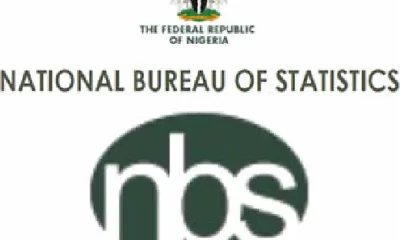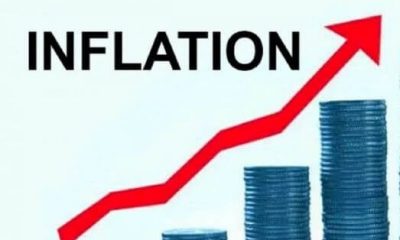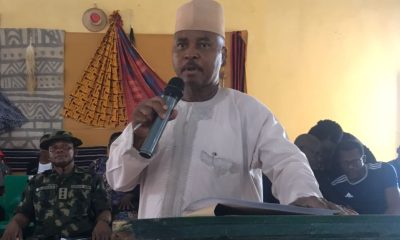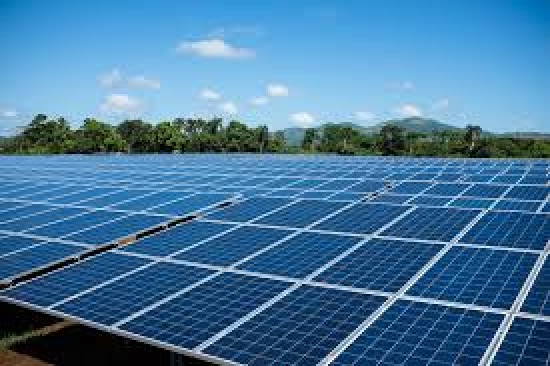Economy
Inflation, Food Security and Implications for Agric Revolution
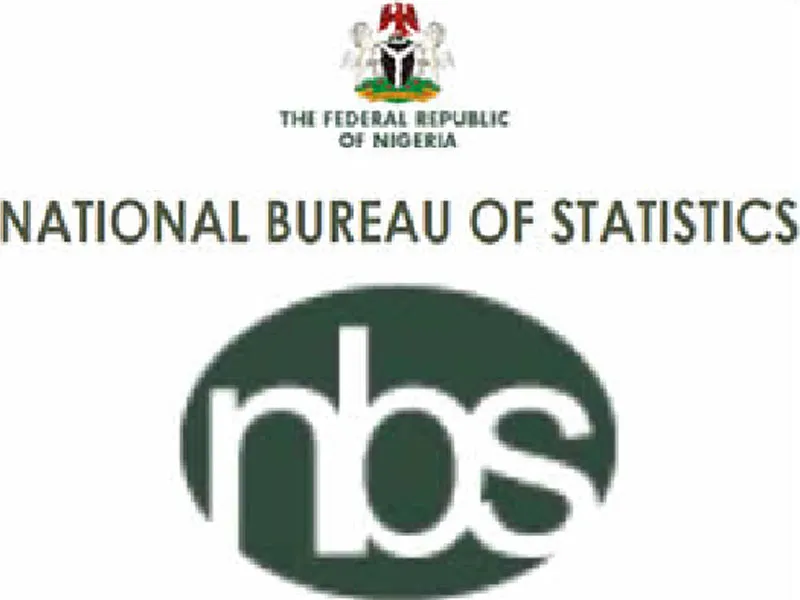
By Okeoghene Akubuike
“My pension is only N90, 000 monthly; my children, two undergraduates, and one graduate all rely on this money and my wife’s little income from her petty trading.
“With the rising prices of food, we can barely afford to eat twice a day, not to mention meeting other needs.
This is the story of Mr David Omotayo, a pensioner whose children still rely on to meet their needs amidst other family demands in the face of increasing food prices and inflation.
The situation not different with Ms Blessing Ike, who said inflation has negatively affected her business and eroded her purchasing power.
“There is no profit from this business anymore, we are barely managing.
The high prices of foodstuffs coupled with the increasing price of cooking gas which I use for my business, leave me with no profit,” she told the News Agency of Nigeria.A civil servant, Mrs Amina Audu, said the high cost of living caused by inflation has reduced her living standard.
She says that 90 per cent of the family income is used on expenses ranging from food to other consumables such as cooking gas and electricity bills.
“It is impossible to save money in recent times”, Audu told NAN.
This is the reality in many Nigerian homes as inflation rate hits a 17- year high, the highest since September 2005 amid soaring food prices, according to the National Bureau of Statistics (NBS).
NBS statistics shows that Nigeria’s headline inflation rate increased to 21.09 per cent on a year-on-year basis in October 2022, indicating a 5.09 per cent increase compared to 15.99 per cent recorded in October 2021.
According to the Statistician-General of the Federation, Prince Semiu Adeniran, factors responsible for the increase in annual inflation rate include disruption in the supply of food products, increased import cost due to currency depreciation, among others.
Consequently, the average Nigerian cannot afford to purchase some of these staple food items, which the Multidimensional Poverty Index Survey (MPI) report launched on Nov. 17 confirms.
The MPI report revealed that 63 per cent of Nigerians are multi-dimensionally poor, accounting for 133 million Nigerians.
According to The World Bank’s Food Security report, domestic food price inflation remains high around the world. Information between June and September 2022 shows high inflation in almost all low-income and middle-income countries.
The bank, therefore, recommended Social Protection Responses to the Global Food Crisis, advising policymakers in developing countries to focus on the poor through social investment.
“Strengthening national social protection systems can help populations manage shocks and stressors and build long-term resilience to food insecurity.
“Social protection, food, and health systems can work together across sectors to improve food security and nutrition outcomes of vulnerable groups,” the report said.
Similarly, the International Monetary Fund (IMF) says high food insecurity is compounding the Covid-19 pandemic’s scarring effects on the vulnerable in Nigeria.
After its routine official visit to Nigeria in November 2022, the IMF said it anticipates that food prices would continue to increase in Nigeria in 2023 due to high fertiliser prices and recent flooding in many parts of the nation.
“Similarly, further volatility in the parallel market exchange rate and continued dependence on central bank financing of the budget deficit could exacerbate price pressures,” IMF said.
The Fund’s position is contained in its Staff Concluding Statement of the 2022 Article IV Mission in Nigeria.
The IMF recommended strengthening the performance of the agricultural sector as key to job creation, food security, and social cohesion.
However, the Federal Government has debunked insinuations that Nigeria will experience food shortage due to recent floods.
At the 5th Edition of President Muhammadu Buhari Administration Scorecard 2015-2017 series in Abuja, the Minister of Agriculture and Natural Resources, Dr Mohammad Abubakar, assured Nigerians that there would be no food shortage in the country.
Abubakar said in spite of the rising inflation in the country, which he said was a global crisis and the flood disaster notwithstanding, the country would not experience food shortage.
“Absolutely, we have enough to eat in this country. There is no shortage of food.
“Yes there is inflation and an increase in prices, but we have enough food to feed everyone. It is better to have inflation than to have no food. We have enough to eat and we will continue to have enough to eat,” Abubakar said.
Mohammed said one of the measures the government had put in place to ensure food security was dry season farming which would be done by also harnessing some of the flood waters.
However, Sam Amadi, an analyst and Director, Abuja School of Social and Political Thoughts, said: “if we are food secured then we want to see it in its affordability.
“Experts are predicting a difficult time with respect to food in Nigeria. Human security includes food affordability.
Economists have suggested concrete steps to address the rising inflation and food prices in Nigeria.
They also opine that the increasing inflation rate in Nigeria has impacted negatively on the living standard of Nigerians.
A lecturer at the Department of Economics, Kaduna State University, Prof. Aminu Usman, said the rising inflation rate meant devaluation of individual income, which amounted to drop purchasing power.
An economist, Dr Ayo Anthony, said Nigeria’s exchange rate management needed to be revisited; and the cost of production must be looked into before inflation can come down.
“The cost of production must be looked into because inflation in Nigeria is more of cost-push inflation. We have energy costs with diesel and petrol, which are on the high side now”, he said.
Another economist, Mr Tope Fasua, advised the federal government to put more efforts into the agriculture sector for increased food production.
“Nigeria is a largely agricultural country, yet 62 years after independence we can’t do better than grow rice. We are also not growing the crops properly and we are not even growing enough crops, diversify across the board, not even the ones we need.”
“So, one place to start is to do more in agriculture and bring some science into agriculture and recognise our luck, capability, and capacity to turn things around,” she said.
Okeoghene Akubuike is of the News Agency of Nigeria (NAN)
Economy
Customs Zone D Seizes Contraband Worth N110m

The Nigeria Customs Service (NCS), Federal Operation Unit (FOU), Zone D, has seized smuggled goods worth over N110 million between April 20 till date.
The Comptroller of Customs, Abubakar Umar, said this at a news conference on Tuesday in Bauchi.
He listed the seized items to include 11,200 litres of petrol; 192 bales of second hand clothing, 140 cartons of pasta, 125 pairs of jungle boots, 47 bags of foreign parboiled rice and 9.
40 kilogramme of pangolin scales.Umar said the items were seized through increased patrols, intelligence-led operations, and strengthened inter-agency collaboration.
The comptroller said the pangolin scales would be handed over to the National Environmental Standards and Regulations Enforcement Agency (NESREA) for appropriate action, while the seized petrol would be auctioned, and the proceeds remitted to the federation account.
He attributed the decrease in smuggling activities of wildlife, narcotics, and fuel to the dedication and professionalism displayed by the personnel in line with Sections 226 and 245 of the NCS Act 2023.
The comptroller enjoined traders to remain law abiding, adding the service would scale up sensitisation activities to combat smuggling.
“We remain resolute in securing the borders and contributing to Nigeria’s economic development,” he said.
The FOU Zone D comprises Adamawa; Taraba, Bauchi, Gombe, Borno, Yobe, Plateau, Benue and Nasarawa. (NAN)
Economy
Trade Tensions: Global Economy Stands at Fragile Turning Point -UN
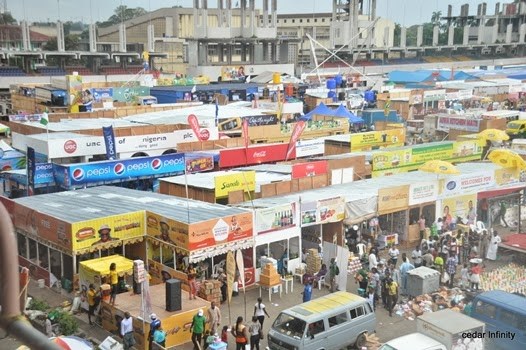
The UN Department of Economic and Social Affairs (UN DESA) has said that the global economy stands at a fragile turning point amid escalating trade tensions and growing policy uncertainties.UN DESA, in a report published on Thursday, stated that tariff-driven price pressures were adding to inflation risks, leaving trade-dependent economies particularly vulnerable.
It stated that higher tariffs and shifting trade policies were threatening to disrupt global supply chains, raise production costs, and delay key investment decisions – all of this weakening the prospects for global growth. The economic slowdown is widespread, affecting both developed and developing economies around the world, according to the report.For instance, in the United States, growth is projected to slow “significantly”, as higher tariffs and policy uncertainty are expected to weigh on private investment and consumer spending.Several major developing economies, including Brazil and Mexico, are also experiencing downward revisions in their growth forecasts.China’s economy is expected to grow by 4.6 per cent this year, down from 5.0 per cent in 2024. This slowdown reflects a weakening in consumer confidence, disruptions in export-driven manufacturing, and ongoing challenges in the Chinese property sector.By early 2025, inflation had exceeded pre-pandemic averages in two-thirds of countries worldwide, with more than 20 developing economies experiencing double-digit inflation rates.This comes despite global headline inflation easing between 2023 and 2024.Food inflation remained especially high in Africa, and in South and Western Asia, averaging above six per cent. This continues to hit low-income households hardest.Rising trade barriers and climate-related shocks are further driving up inflation, highlighting the urgent need for coordinated policies to stabilise prices and protect the most vulnerable populations.“The tariff shock risks hitting vulnerable developing countries hard,” Li Junhua, UN Under-Secretary-General for Economic and Social Affairs, said in a statement.As central banks try to balance the need to control inflation with efforts to support weakening economies, many governments – particularly in developing countries – have limited fiscal space. This makes it more difficult for them to respond effectively to the economic slowdown.For many developing countries, this challenging economic outlook threatens efforts to create jobs, reduce poverty, and tackle inequality, the report underlines. (NAN)Economy
FG To Finalize N1.5trn Road Concession Project- Edun

The Minister of Finance and Coordinating Minister of the Economy, Mr Wale Edun, says the Federal Government will soon finalise N1.5 trillion road concession project.
Edun made the statement during a meeting with some private sector investors in Abuja on Wednesday.
He said that the government was on the verge of finalising the landmark N1.
5 trillion road concession project, launched in 2021 under the Highway Development and Management Initiative (HDMI).The minister said that the initiative aimed to involve private sector partners in the reconstruction and management of nine major highways across the country, spanning approximately 900 kilometers.
He said that the partners had almost completed all arrangements for the highways, which they would finance, rebuild, and maintain under 25-years concession agreements.
Edun said that the concessionaires were expected to recoup their investments through tolling fees.
“We met the concessionaires who have virtually concluded all the agreement arrangements for nine roads, nine major highways, which they are contracting to refinance the rebuilding of and to recover their funds from tolling fees under 25-year or so agreements.
“And we met them to iron out the remaining administrative obstacles for the kicking off construction of these roads,” he said.
Edun said that the substantial private sector investment would bridge budgetary gaps.
He added that it would also allow investors to undertake revenue-generating projects, leveraging their expertise and resources for long-term implementation and maintenance.
“Thereafter, it will be a question of signing the addendums and moving to the site.
“As you know, already the 125-kilometer Benin–Asaba Highway concession agreement has been signed. The addendum has been signed.
“All arrangements have been finalised, in fact, the ministry of works have handed over the road to the concessionaires.
“They have already started the preliminary arrangements for reconstruction of that road in place of a 10 lane highway.
“It is an investment, it’s a project and an initiative that will reduce the travel time between Benin and Asaba right up to the Niger Bridge,” the minister said.
Edun said that the Benin–Asaba Highway project, which has already commenced, is expected to reduce travel time between Benin and Asaba from four hours to one hour, significantly enhancing productivity and efficiency in the region.
He described the HDMI, launched in 2021, as a strategic programme by the federal government aimed at attracting private sector investment to improve Nigeria’s federal road network.
Edun said that the initiative seeks to address the challenges of inadequate funding and maintenance by leveraging Public-Private Partnerships (PPP) to develop and manage road infrastructure.
Under the HDMI, 12 highways were initially selected for concession, covering a total of 1,963 kilometers.
These roads include Benin–Asaba, Abuja–Lokoja, Kano–Katsina, Onitsha–Owerri–Aba, Shagamu–Benin, Abuja–Keffi–Akwanga, Kano–Shuari.
Others are Potiskum–Damaturu, Lokoja–Benin, Enugu–Port Harcourt, Ilorin–Jebba, Lagos–Ota–Abeokuta, and Lagos–Badagry–Seme roads.
The minister said that the initiative was projected to generate over 50,000 direct and 200,000 indirect jobs, contributing significantly to the country’s economic growth and development.
The Minister of Works, Engineer David Umahi who joined the meeting virtually reassured the private sector partners on the HDMI of the federal government commitment.
He said that everything possible would be done to resolve the contending issues, adding he will soon be back to address all pending issues.
One of the concessionaires, Mr Kola Karim, representing Shoreline, emphasised the need for right and enforceable documents stipulating the takeoff and handover dates, which would attract investors to invest their funds.
Other private sector partners also requested for the addendum to the original agreement to be signed that would enable toll sections of the completed highways while work was in progress on other sections.
They noted that each concessionaire has unique challenges that should be dealt with accordingly.
Also in the meeting were Minister of Budget and Economic Planning, Abubakar Bagudu, and the Director General Infrastructure Concession and Regulatory Commission (ICRC), Dr Jobson Ewalefoh

